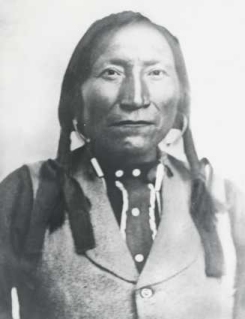
Kiowa leader Lone Wolf
In American constitutional
law, plenary power is the absolute, or unlimited, power that has
been granted to a body of government. click here for more
"The assignment of plenary power to
one body divests all other governmental bodies from sharing that
power. As an example, the Commerce Clause of the Constitution
gives Congress absolute power over interstate commerce.
Consequently, the U.S. Supreme Court has repeatedly ruled that
states may not pass laws that challenge or affect interstate
commerce unless they are given permission by Congress. click here for more
In a famous 20th century legal case
cited as Lone Wolf, the U.S. Supreme Court recognized
Congress as having plenary power over all matters involving Native
Americans.